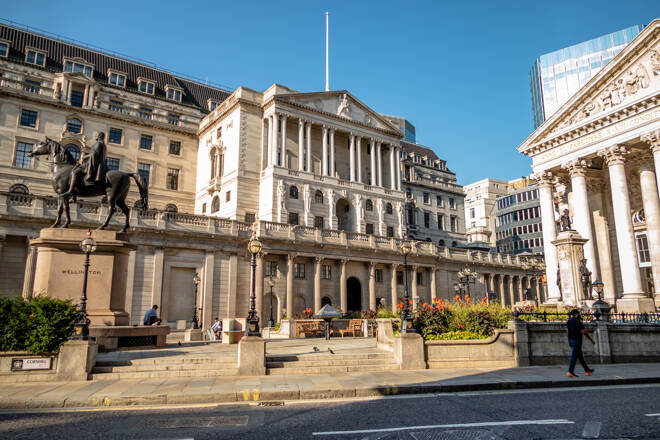Advertisement
Advertisement
BoE Governor Bailey Shares ECB President Lagarde’s Anti-Crypto Views
By:
The Governor of the Bank of England delivered another anti-crypto message on Monday. The comments come despite the UK's ambitions to drive innovation.
Key Insights:
- The TerraUSD and Terra LUNA collapse has given central banks a platform to deliver crypto warnings.
- On Monday, Bank of England Governor Bailey talked of cryptos having no intrinsic value.
- Bailey’s comments follow ECB President Lagarde’s comments from the weekend. Lagarde said that cryptos are worthless.
This week, Bank of England Governor Bailey talked crypto. In the week ending May 13, the crypto market experienced its first major ‘Lehmanesque’ collapse.
Stablecoin TerraUSD (UST) lost its peg to the dollar in a collapse to an all-time low of $0.04, sending Terra LUNA into oblivion.
The Terra collapse led to a broad-based crypto sell-off, wiping out $472 billion from the crypto market and a bitcoin (BTC) slide to a May 12 low of $26,591.
In the wake of the market collapse, central bankers seized the opportunity to crypto-bash.
Bank of England Governor Bailey Goes Anti-Crypto, again
On Monday, former government advisor Jimmy McLoughlin interviewed Bank of England Governor Bailey on Jimmy’s Jobs of the Future. The 49-minute podcast included questions on Russian sanctions, the economy, and cryptocurrencies.
Bailey said that products like bitcoin were not “practical means of payment.”
Governor Bailey also took the opportunity to send a warning on cryptocurrencies, stating that they have no “intrinsic value” while noting they do have “extrinsic value.”
The BoE Governor also explained the value of digital assets by saying, “people collect all sorts of things.”
While negative on cryptocurrencies, Bailey acknowledged the benefits of the underlying technology that supports the transformation into digital currencies.
Bailey’s comments followed an April interview when the Governor said cryptocurrencies were a “New Front Line” for criminal scams.
The anti-crypto commentary followed ECB President Lagarde, who spoke on Sunday, calling cryptos worthless.
Bank of England Governor Bailey and ECB President Lagarde’s comments come at a poignant time.
On the one side, governments are eager to drive innovation while, on the other side, lawmakers are looking to introduce regulations that could stymy innovation and force blockchain technological advancements overseas.
Central Banks, Banks, and Corporations Diverge on Cryptocurrencies
While central banks continue to issue warnings, financial institutions have taken a different stance on digital assets.
In April, CNBC reported on financial institutions building teams focused purely on cryptos and blockchain technology. Banks include US giants Goldman Sachs, JPMorgan Chase, and Morgan Stanley. European banks, such as Barclays, Credit Suisse, Deutsche Bank, and UBS are also in expansion mode.
The need for banks to jump on the bandwagon is not surprising. Mainstream adoption and demand for crypto-related products have risen sharply.
In recent weeks, several luxury fashion brands announced plans to accept digital payments in US stores or from online customers in the US.
While regulators are looking to clamp down on cryptos, the US has also seen the evolution of crypto-collateralized loans, including crypto-backed mortgages.
Both Bailey and Lagarde’s comments could stall innovation in the tech space. As other jurisdictions, including Dubai, are seeing, it’s all or nothing, meaning governments may not be able to cherry-pick by saying yes to blockchain but no to crypto.
About the Author
Bob Masonauthor
With over 28 years of experience in the financial industry, Bob has worked with various global rating agencies and multinational banks. Currently he is covering currencies, commodities, alternative asset classes and global equities, focusing mostly on European and Asian markets.
Advertisement
